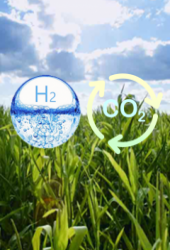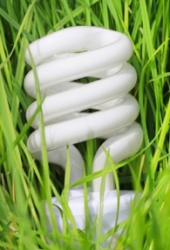ด้วยสถาบันวิจัยพลังงาน จุฬาลงกรณ์มหาวิทยาลัย และมหาวิทยาลัยโตเกียว ประเทศญี่ปุ่น ได้ลงนามในบันทึกความเข้าใจเพื่อร่วมมือกันในโครงการวิจัย “การวิจัยเชิงนโยบายในมุมมองของไทยเพื่อการพัฒนาด้านพลังงานในสาธารณรัฐแห่งสหภาพเมียนมาร์ (Policy Research on Energy Development in Myanmar: Thai’s Perspective)” ซึ่งเน้นในบริบทของการใช้พลังงานไฟฟ้าในชนบทของสาธารณรัฐแห่งสหภาพเมียนมาร์
สถาบันฯ จึงได้ร่วมกับ Todai Policy Alternative Research Institute (PARI) มหาวิทยาลัยโตเกียว ในการจัดสัมมนาในหัวข้อ “มุมมองของไทยต่อการวิวัฒนาการด้านพลังงานระหว่างประเทศไทยและสาธารณรัฐแห่งสหภาพเมียนมาร์” เพื่อศึกษาและทำความเข้าใจในโครงการหรือแผนปฏิบัติการที่จะนำเข้าพลังงานจากประเทศเมียนมาร์ภายใต้บริบทความมั่นคงด้านพลังงานของไทย หารือเกี่ยวกับผลกระทบที่อาจเกิดขึ้นจากการวางแผนการนำเข้าพลังงานของไทย จากการผลิตไฟฟ้าในชนบทของสาธารณรัฐแห่งสหภาพเมียนมาร์ และศึกษาลักษณะของความร่วมมือระหว่างประเทศไทยและสาธารณรัฐแห่งสหภาพเมียนมาร์ ในวันจันทร์ที่ ๑๖ ธันวาคม พ.ศ. ๒๕๕๖ เวลา ๑๓.๐๐ – ๑๗.๐๐ น. ณ ห้องประชุม ๑๒๑๑ ชั้น ๑๒ อาคารสถาบัน ๓ สถาบันวิจัยพลังงาน จุฬาลงกรณ์มหาวิทยาลัย
เอกสารประกอบการสัมมนา
02 Scope of the workshop – Kensuke YAMAGUCHI
03 Myanmar Energy Outlook – Yanfei Li
04 Thai’s Perspective on Power Import from Myanmar – Jiraporn Sirikum
05 Power Trade in Myanmar, Laos and Cambodia – Nobuo Hashimoto
06 Fieldwork Plan – Keith W. Rabin
บทสรุป
Despite of its rich endowment, Myanmar remains a poorly electrified country, without integrated national energy policy. In response, the ongoing project initiated by Energy Research Institute (ERI), Chulalongkorn University / Policy Alternatives Research Institute (PARI), the University of Tokyo , supported by Economic Research Institute for ASEAN and East Asia (ERIA), pays a special focus on three areas of action for widening access to energy especially in rural regions: grid extension, regional integration, and off-grid development.
To address the second area of action, regional integration, ERI and PARI co-organized the joint workshop “Evolving Energy Relationship between Thailand and Myanmar” on 16th December 2013, where more than 30 participants gathered from academia, Thai utility firms and experts on the Myanmar politics. Despite the potential of reciprocal benefit leveraging the bilateral power trade, the power project has not yet been particularly active between the two. The workshop, therefore, intended to identify the rooted barriers in the further power integration.
In the workshop, the participants broadly agreed upon the significance to remove the institutional barriers when attempting to strengthen the bilateral partnership in power trade. The Government in Myanmar, it is argued, should develop institutional capacity particularly by establishing an integrated Power Development Plan (PDP) and clearer Environmental Impact Assessment (EIA), and better management of domestic opposition group against power construction. Those institutional arrangements are regarded to optimize the other technical and economic barriers.
ลิงค์ที่เกี่ยวข้อง
ติดต่อ
หากท่านต้องการข้อมูลเพิ่มเติม โปรดติดต่อ ดร.สุธี ไตรวิวัฒนา ผ่าน email มายัง suthee@eri.chula.ac.th หรือ หมายเลขโทรศัพท์ 08-4099-8035





